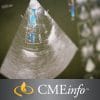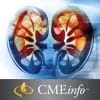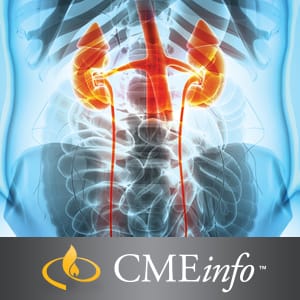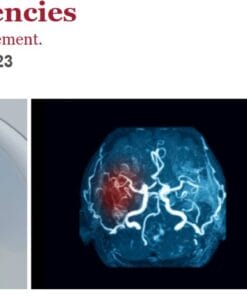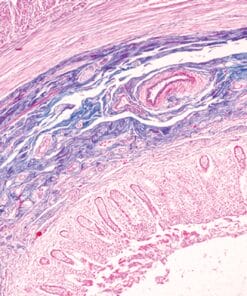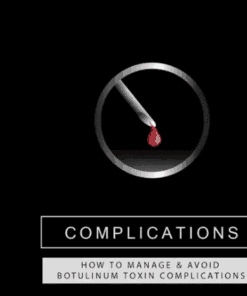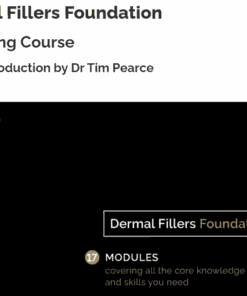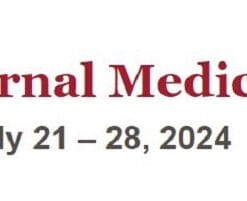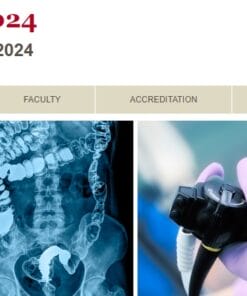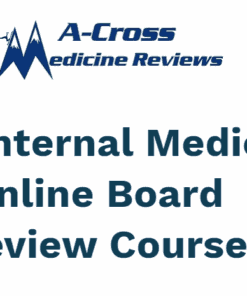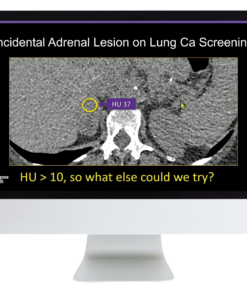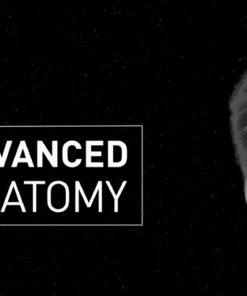Comprehensive Review of Urology
Oakstone Specialty Review
Optimize patient outcomes with this expertly informed CME program detailing the latest advancements and emerging issues in the field of urology.
Improve Patient Care in Urology
Comprehensive Review of Urology provides you with the most relevant information on core concepts in urology. This well-designed CME course focuses on current standards of care and keeps you informed on the latest developments in the field. Led by a renowned urologist, Aria F. Olumi, MD, it will significantly improve your urological skill set with presentations covering all the major subspecialty areas of urology. It will help you to better:
- Discuss the discrete urologic infections and inflammatory disorders and how they are best managed
- Describe the best surgical approaches for urologic trauma
- Identify the ideal treatment approaches for patients with kidney cancer
- Differentiate between non-muscle invasive bladder cancer and muscle invasive bladder cancer
- Summarize the most efficacious therapies for bladder cancer
- Differentiate between medical approaches and surgical approaches for prostate cancer
- Describe active surveillance in prostate cancer
- Assess the importance of adolescent and transitional urology
- List common and uncommon urologic conditions in children
- Define male and female sexual dysfunction
- Explain evaluation and medical management of urinary incontinence in women
- Distinguish among the benefits of medical and surgical management of lithiasis
General
- Radiologic Evaluation of Renal Masses – Steven S. Raman, MD
- Imaging for Advanced Metastatic Cancer – Mukesh Harisinghani, MD
- Prostate MRI for Evaluation of Prostate Cancer: An Overview of Techniques and Interpretation – Leo L. Tsai, MD, PhD, MSc
- Scrotal Ultrasound – Aoife Kilcoyne, MB BCh BAO
- Pathology of the Prostate, Kidney, and Adrenals – Chin-Lee Wu, MD, PhD
- Pathology of the Bladder – Justine A. Barletta, MD
- Pathology of the Testis – Robert H. Young, MD, FRCPath
- Pathology of the Penis – Robert H. Young, MD, FRCPath
- Urologic Emergencies – Jay Simhan, MD, FACS
- Laser Physics and Safety – Lori Lerner, MD
Infectious and Inflammatory Disease
- Infections of the Urinary Tract – Elise J. B. De, MD
- Preventing Catheter-Associated Urinary Tract Infections (CAUTI) – Lona Mody, MD, MSc
- Interstitial Cystitis – Christopher K. Payne, MD
- Chronic Pelvic Pain in Men – Jeannette M. Potts, MD
Infertility and Sexual Dysfunction
- Male Infertility – Cigdem (“Cori”) Tanrikut, MD
- Erectile Dysfunction – Arthur L. Burnett, MD, MBA
- Peyronie Disease and Priapism – Hossein Sadeghi-Nejad, MD, FACS
- Female Sexual Health – Leah S. Millheiser, MD, FACOG
- Transgender – Male to Female Surgery – Robert D. Oates, MD
Male Genitalia
- Cancer of the Testis – Joel Sheinfeld, MD
- Penile Cancer – Curtis A. Pettaway, MD
- Urethral Cancer – Curtis A. Pettaway, MD
- Disorders of the Scrotum and Seminal Vesicles – Jay I. Sandlow, MD
Trauma
- Renal and Upper Urinary Tract Trauma – Jay Simhan, MD, FACS
- Bladder and Prostate Trauma – Richard A. Santucci, MD
- Urethral Trauma – Thomas G. Smith III, MD, FACS
- Genital Trauma – Lee C. Zhao, MD, MS
Urinary Obstruction and Nephrolithiasis
- Urinary Tract Obstruction – Stephen Y. Nakada, MD, FACS, FRCS (Glasg.)
- Urinary Lithiasis – Medical Management – David S. Goldfarb, MD
- Urinary Lithiasis – Surgical Management – Peter L. Steinberg, MD
Renal Disease
- Kidney Cancer – Active Surveillance – Adam S. Feldman, MD
- Kidney Cancer – Open Surgical Management – Christopher G. Wood, MD
- Kidney Cancer – Laparoscopic Management – Andrew A. Wagner, MD
- Kidney Cancer – Systemic Therapy for Advanced Disease – David F. McDermott, MD
- Kidney Cancer – Ablative Therapy – Ruslan Korets, MD
- Acute Kidney Disorders – Melanie P. Hoenig, MD
- Chronic Kidney Disorders – David J.R. Steele, MD
- Cancer of the Renal Pelvis and Ureter – Vitaly Margulis, MD, FACS
Incontinence and Voiding Disorders
- Urinary Incontinence in Women – Evaluation and Medical Management – Gary E. Lemack, MD
- Surgical Management of Stress Incontinence in Women – Toby C. Chai, MD
- Management of Sphincteric Urinary Incontinence After Radical Prostatectomy – Craig V. Comiter, MD
- Urinary Tract Fistula – Elise J.B. De, MD
Bladder
- Bladder and Urethral Diverticula – Eric S. Rovner, MD
- Non-Muscle Invasive Bladder Cancer – Angela B. Smith, MD, MS, FACS
- Intravesical Therapy for Management of Non-Muscle Invasive Bladder Cancer – Zachary L. Smith, MD
- Surgical Management of Muscle Invasive Bladder Cancer – Bernard H. Bochner, MD
- Bladder-Preserving Trimodality Therapy for Management of Muscle Invasive Bladder Cancer – Jason A. Efstathiou, MD, DPhil
- Advances in Systemic Therapy for Management of Muscle Invasive Bladder Cancer – Richard J. Lee, MD, PhD
- Urinary Diversion and Bladder Replacement – Sia Daneshmand, MD
Prostate
- Benign Prostatic Hyperplasia – Medical Management – Steven A. Kaplan, MD
- Benign Prostatic Hyperplasia – Surgical Management – Lori Lerner, MD
- Prostate Cancer Screening – Kristen Scarpato, MD
- Prostate Cancer – Active Surveillance – Stacy Loeb, MD
- Prostate Cancer – Biomarkers – Todd Morgan, MD
- Prostate Cancer – Utilization of MRI for Screening, Diagnosis, and Management – Mohummad Minhaj Siddiqui, MD
- Prostate Cancer – Focal Therapy – Behfar Ehdaie, MD, MPH
- Prostate Cancer – Surgical Management – Gerald L. Andriole, MD
- Radiation for Prostate Cancer in the Definitive and Post-Operative Setting – Paul L. Nguyen, MD
- Patient-Reported Outcomes After Localized Prostate Cancer Treatments – Peter Chang, MD, MPH
- Systemic Therapy for Metastatic Prostate Cancer – Richard J. Lee, MD, PhD
Pediatric Urology
- Perinatal Urology – Vijaya M. Vemulakonda, MD, JD
- Common Pediatric Urologic Conditions: Kidneys, Genital Tract – J. Todd Purves, MD, PhD
- Common Pediatric Urologic Conditions: Congenital Disorders, Bladder – Hillary Copp, MD, MS
- Pediatric Trauma – Michael P. Kurtz, MD
- Urologic and Renal Cancer in Children – Patricio C. Gargollo, MD
- Adolescent and Transitional Urology – Carlos R. Estrada, Jr., MD, MBA
Learning Objectives
At the conclusion of this CME activity, you will be better able to:
- Discuss the discrete urologic infections and inflammatory disorders and how they are best managed
- Describe the best surgical approaches for urologic trauma
- Identify the ideal treatment approaches for patients with kidney cancer
- Differentiate between non-muscle invasive bladder cancer and muscle invasive bladder cancer
- Summarize the most efficacious therapies for bladder cancer
- Differentiate between medical approaches and surgical approaches for prostate cancer
- Describe active surveillance in prostate cancer
- Assess the importance of adolescent and transitional urology
- List common and uncommon urologic conditions in children
- Define male and female sexual dysfunction
- Explain evaluation and medical management of urinary incontinence in women
- Distinguish among the benefits of medical and surgical management of lithiasis
Intended Audience
The activity was designed to provide urologists, urology fellows and residents, surgery residents interested in urology, other licensed individual practitioners or ancillary staff interested in urology, or who participate in the delivery of urologic care with current, relevant, and condensed information needed to pass certification and recertification exams.
Date of credit termination: November 1, 2021


